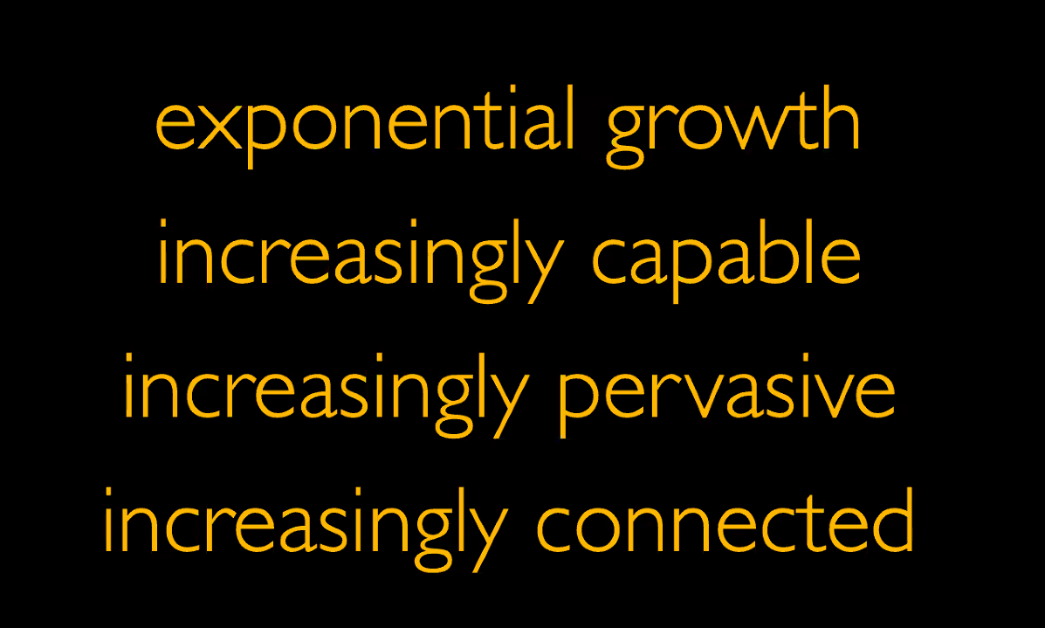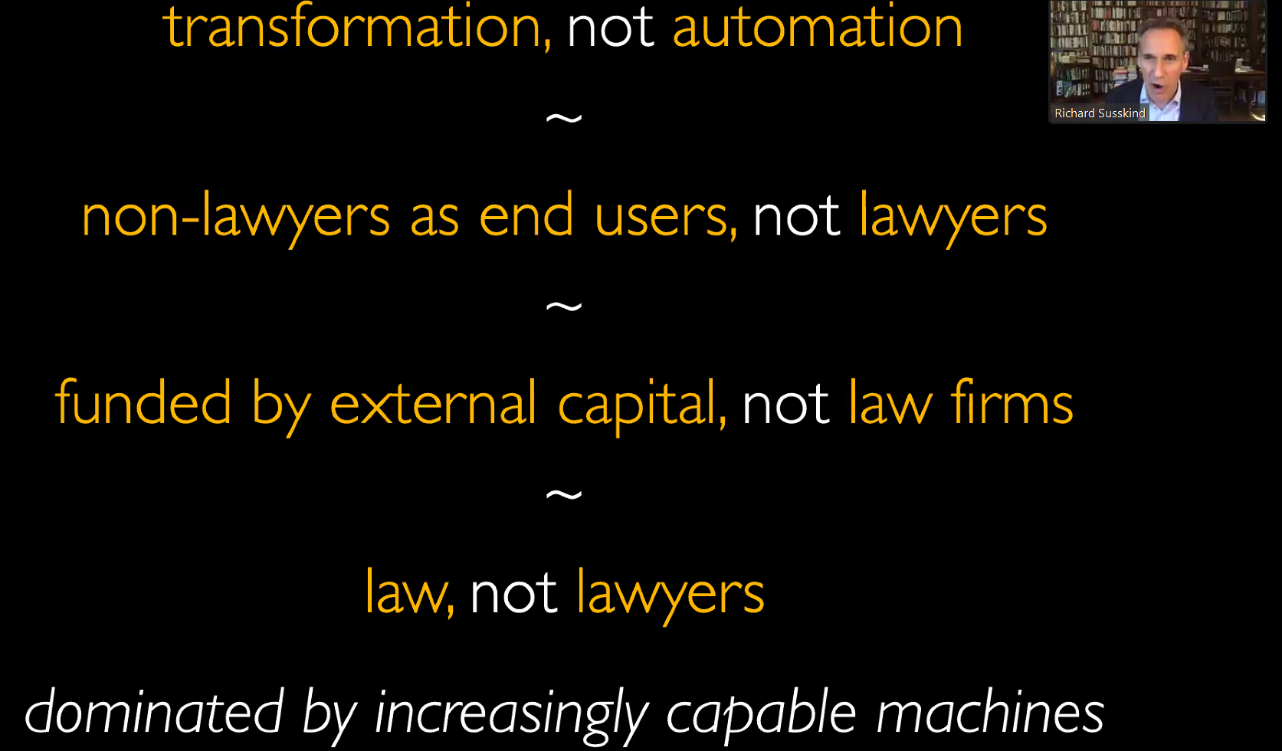By 2030 we will see significant legal work being done by machines. As exponential growth of technology consumes the world, the legal industry is especially appetising. As a result, legal services will be fundamentally different than today in terms of both job function and the way legal services are provided.
In the final of a four-part global webinar series, The Uncertain Decade, Legal Geek brought us bold concepts and a vision about the future of the legal industry, bringing together two of the most respected names in the legal industry—Mark Cohen, CEO of Legal Mosaic, and Professor Richard Susskind—to delve into the how digital transformation impacts the legal function and then peer into the future of legal technology.
The future of legal technology
Machines will dominate the industry, Susskind offered, starting the discussion of what he termed, The First 60 Years, where the legal industry was marked by a time of automation from 1960 to today. While that continues, he emphasised the pivot will be from automation to transformation in the future.
Underscoring this concept, Susskind cited various examples of technology’s progress, including memory chips becoming cheaper yet larger in capacity and a “huggie bot” that can read human feelings and offer a hug based on perceived emotions of sadness, joy, or comfort.
Concluding with this thought on progress as pushed by exponential growth, Susskind suggested we will see an increasingly capable, pervasive, and connected world pushing legal to change.

Whilst Susskind raised the concept of virtual reality in legal—something he said likely will have a significant impact in five to ten years—he also introduced a tantalising concept called embedded law. That is the idea of placing legal components into everything, Susskind described, drilling into this futuristic idea by discussing how at various times, the law could be baked into the process by being coded into workflow or documentation. Extrapolating from that, Susskind predicted the legal industry could see algorithms helping to curate current legal guidance. and in turn, the possibility of decisions or recommended advice, also called augmented intelligence. (I would suggest that blockchain may play a significant role in this, especially in the area of smart contracts.)
It is really about the systems going forward not the lawyer, Susskind said, as Cohen peppered him with questions. Lawyers far from retirement will have to re-engineer themselves, Susskind explained, adding that at the core of this thought process “is how can lawyers deliver the outcomes that clients want”.
Susskind further explained that people have been confusing “our services with how we get there and how we have always worked”. While the industry has been about automation for the past several decades, transformation is what will take hold going forward.
Indeed, law firms have been so keenly focused on the plumbing technology (e.g., accounting, computers, and connections) for the back office that they have missed the boat on technologies to deliver legal advice to their clients and identify dis-intermediaries in the business.

In concluding his vision of the future of legal technology, Susskind said we need to “put the fence at the top of the cliff rather than the ambulance at the bottom”. Meaning, we should utilize technology to improve the customer experience by providing preventative guidance and information technology.
For example, Susskind said, several law firms have rethought their office lobby to make it more welcoming as a reception area, sharpening a focus on user-centred design and design-thinking enabled by technology. That will be the future, Susskind noted.
Getting practical with digital transformation
Historically, digital transformation has been under discussion in other industries for years, and now, the legal industry is catching up. Indeed, Cohen cited studies by Gartner that show this is the most important function for businesses, immediately followed by finding talent to provide outcomes for new ways of delivering services to clients.
Cohen further defined digital transformation as being “about customers, by finding new ways of gaining access, ensuring customer satisfaction, and not about the latest technology”. Technology is simply an enabler or tool, Cohen explained, adding that data, on the other hand, is monumental.
Lawyers have traditionally used their gut, which will no longer work, Cohen noted, mentioning that findings from McKinsey & Co. show that those organisations that have performed a digital transformation are “23-times more likely to acquire customers, 6 percent more likely to retain customers, and 19-times more likely to be profitable”. Digital transformation also has an impact on diversity, collaboration, and the organisation’s ability to culturally adapt, Cohen said, adding that the industry needs to do a much better job of being inclusive of every group—lawyers, technologists, data analysts, and people of various backgrounds, genders, and ethnicities.
“Others out there can do what lawyers are doing right now”, Cohen said. “Lawyers must become aware of digital transformation and either adapt to it or be marginalised.” Unfortunately, again citing a Gartner survey, a very small percentage of the legal industry is ready for change, Cohen added. The industry must be open to new paradigms around who is hired, how they are educated, and how regulators could get involved as the industry is moved beyond self-regulation.
This is the central question for legal professionals going forward, both panellists contended. How can lawyers prepare themselves for the future of the legal industry and digital transformation? Both agreed that people need to think long and hard about what a legal career will look like in 2030. If you are winding down your career, you should be fine, they said, but if you are younger, you may want to rethink your role.
The legal industry’s openness to the full spectrum of people, cultures, legal professionals, professional support roles, and technologies will be paramount to its future sustainability, they added. And while the horizon could be fabulous for most, in practice, lawyers in the future will be working to enable legal machines, far more so than today. Fighting that concept is inevitable for some and losing that battle is almost certain. The winners in this legal evolution are those that find a way to adapt. The positive note of adapting is that with the support and efficiency of legal technology, lawyers can focus more time and energy on higher value tasks and client care.



